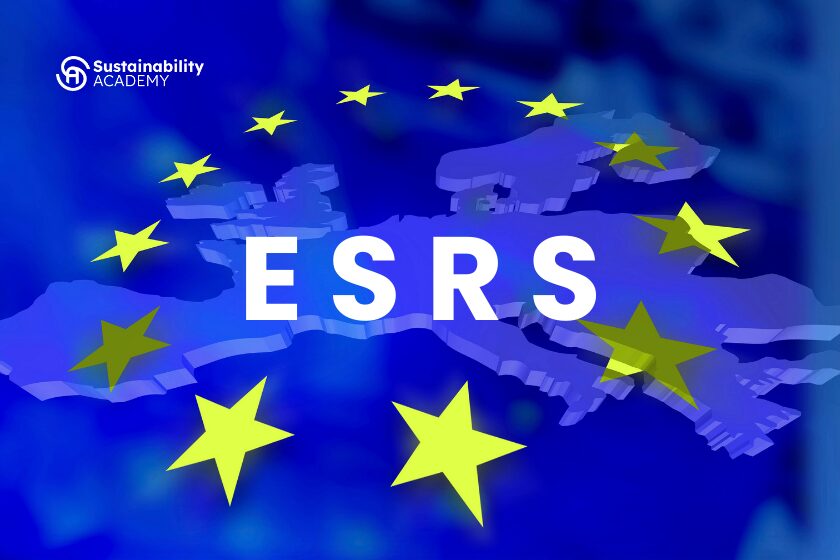With the European Sustainability Reporting Standards (ESRS) and the Corporate Sustainability Reporting Directive (CSRD) set to transform the landscape of corporate sustainability disclosures, companies are asking critical questions about how to ensure compliance. Below, we address the most frequently asked questions, helping businesses understand the steps they need to take, while introducing our Online Certificate on CSRD ESRS to equip professionals with the skills they need.
-
What is Double Materiality, and Why is it Important?
Double materiality is a key concept under ESRS that requires companies to assess sustainability matters across two dimensions: impact materiality (how the company affects the environment and people) and financial materiality (how these sustainability risks and opportunities impact the company financially). The ESRS obligates organizations to determine which topics are material through a structured double materiality assessment, a critical first step for compliance, regarding to the Position Green.
-
What Disclosures Are Mandatory Under ESRS?
ESRS outlines several disclosure requirements, but not all are mandatory for every company. The General Disclosures (ESRS 1 and ESRS 2) apply to all organizations, while other topical standards depend on the outcomes of the double materiality assessment. For many companies, climate-related disclosures will become significant. It is also important to note that, as of the latest ESRS updates, companies are required to publish their sustainability reports as part of their management reports, ensuring these are fully integrated into financial reporting.
-
How Can Companies Prepare for ESRS Data Collection?
The data collection process for ESRS is extensive and requires contributions from various departments across the organization. One major challenge is ensuring transparency and traceability of data, especially as ESRS encourages gathering both quantitative and qualitative data. Companies are advised to use software solutions to streamline their reporting processes, making it easier to manage and share data across teams.
-
What Happens if Companies Don’t Fully Comply with ESRS in the First Year?
While the ESRS are strict, there is an understanding that not all companies will achieve full compliance in their first year of reporting. However, it is crucial to demonstrate progress towards ESRS compliance by aligning early and updating processes continuously. In relation to the Daato.net, failing to provide material disclosures can result in a loss of trust from stakeholders, including investors who increasingly demand robust sustainability reporting.
-
How Do ESRS and Other Frameworks Interlink?
Many organizations are already familiar with frameworks such as the Global Reporting Initiative (GRI) or Sustainability Accounting Standards Board (SASB). ESRS is designed to work alongside these frameworks, but companies may need to cross-reference their reports to ensure all material topics are covered. Interoperability between ESRS and other existing frameworks ensures that businesses don’t have to start from scratch.
-
What’s the timeline for CSRD and ESRS compliance?
The CSRD introduces a phased approach for compliance. Large companies must begin reporting in 2024 for the 2025 financial year, while small and medium enterprises (SMEs) have until 2026 to comply. Businesses are encouraged to start preparing now, as early compliance will ensure a smoother transition and build a stronger sustainability framework for the future.
Introducing Our Online Certificate on CSRD ESRS
To help businesses and professionals navigate these new requirements, we offer our new course, Online Certificate on CSRD ESRS. This course provides in-depth training on all aspects of ESRS compliance, from conducting a double materiality assessment to understanding how to collect and report ESG data.
Key Course Features:
- Comprehensive Training: Learn everything you need to know about the Corporate Sustainability Reporting Directive (CSRD) and European Sustainability Reporting Standards (ESRS), including how to conduct double materiality assessments, integrate data collection processes, and report in accordance with the standards.
- Real-World Applications: Our course emphasizes practical, actionable strategies that can be immediately applied within your organization to ensure compliance with the new standards.
- Expert Instructors: Benefit from guidance provided by industry experts with deep knowledge of ESG reporting and sustainability frameworks.
- Flexible Learning: The online format allows professionals to study at their own pace, making it accessible to busy executives, compliance officers, and sustainability teams.
Additionally, we offer a bundle that includes the Online Certificate on Sustainability ESG Reporting at a 20% discount when you enroll in both courses. This gives you a comprehensive understanding of both the ESRS and broader ESG reporting frameworks, ensuring you have all the tools needed for effective sustainability reporting.
Ready to start? Enroll in our Online Certificate on CSRD ESRS today and lead your organization through the complexities of sustainability reporting.

